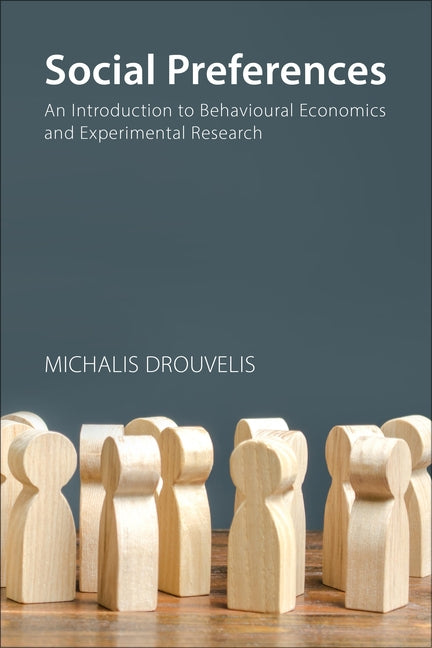We're sorry. An error has occurred
Please cancel or retry.
Social Preferences

Some error occured while loading the Quick View. Please close the Quick View and try reloading the page.
Couldn't load pickup availability
- Format:
-
30 September 2021

This introduction to one of the key areas of behavioural economics – social preferences – explains in clear, nontechnical language how particular groups of experiments have been used by behavioural economists to shed light on the processes of economic decision making. These include bargaining games, trust games and public good games. The significance of determinants such as punishment, sanctioning, emotion, cooperation, reciprocity, leadership, framing and cross-cultural differences are demonstrated and explained, and students are provided with the understanding and resources needed to replicate the experiments themselves.

BUSINESS & ECONOMICS / Consumer Behavior, Behavioural economics

Timely, engaging, and accessible... An ideal resource for students (undergraduate to PhD), and an informed audience, who want to learn more about the experimental evidence around social preferences, as well as to gain an appreciation of how to conduct their own experiments in this area. A very welcome addition to the economics library.
1. Introduction1.1 Homo economicus1.2 Behavioural and experimental economics1.3 Deception and monetary incentives
2. Bargaining games2.1 Introduction2.2 Dictator games2.3 Competition from proposers’ and responders’ side2.4 Psychological factors2.5 Financial factors
3. Trust and gift exchange games3.1 Introduction3.2 Disentangling motives in the trust game3.3 Behavioural determinants of trust3.4 Gift exchange games
4. Public Good Games I4.1 Introduction4.2 Do people cooperate?4.3 Why do people cooperate?4.4 Conditional cooperation
5. Public Good Games II5.1 Introduction5.2 Can pre-play communication promote pro-social outcomes?5.3 Income inequality and pubic good provision5.4 Social identity and discrimination in public good experiments
6. Leadership6.1 Introduction6.2 Sequential vs simultaneous public good games6.3 Leader appointment6.4 Who leads more effectively?
7. Public good games with sanctioning I7.1 Introduction7.2 The role of emotions7.3 Sanctioning mechanisms7.4 Does the presence of monetary sanctions always promote cooperation?
8. Public good games with sanctioning II8.1 Introduction8.2 Voting on public good institutions with punishment and rewards8.3 Voting on formal sanctions8.4 Third-party punishment games8.5 Factors determining the assignment of third-party sanctions
9. Cross-cultural experiments9.1 Introduction9.2 Fairness and bargaining behaviour9.3 Trust games9.4 Cooperative behaviour9.5 Negative reciprocity
Appendix A Experimental instructionsAppendix B Glossary



